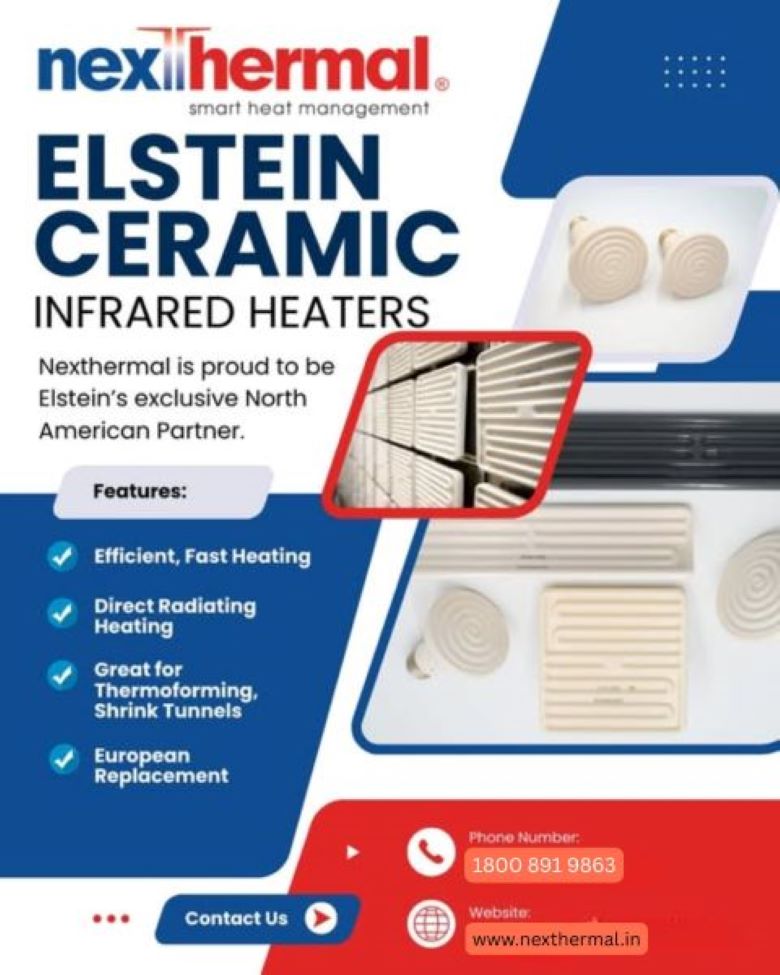In India’s rapidly advancing manufacturing sector, the difference between an efficient process and costly failure often comes down to one variable: temperature control. Achieving perfect thermal uniformity, minimizing energy waste, and ensuring component longevity requires engineering insight that goes far beyond traditional component selection. It demands predictive power.
This is the power unlocked by Thermal Simulation, specifically through Finite Element Analysis (FEA) and Computational Fluid Dynamics (CFD). At Nexthermal, a leading engineering services provider in India with over 30 years of expertise, these advanced computational tools are not supplementary—they are foundational to how we design and deliver custom thermal solutions from our hub in Bangalore.
We don’t rely on guesswork or bench testing alone. We model the future of your heating process, ensuring every component, from the custom heating elements to the final controller, performs flawlessly under real-world conditions before a single prototype is built.
The Engineering Imperative: Moving Beyond Traditional Design
For decades, industrial heating design relied on empirical data and iterative physical testing. This method is slow, expensive, and often results in over-engineered (and energy-inefficient) systems designed to compensate for unknowns.
Modern industrial demands—especially in high-stakes fields like medical devices, aerospace component fabrication, and high-speed packaging—require absolute precision. This is where thermal simulation steps in.
What is Thermal Simulation (FEA/CFD)?
Thermal Simulation is a specialized engineering service that uses powerful software to create virtual models of heating systems and the surrounding physical environment (the workpiece, insulation, air gaps, etc.).
- Finite Element Analysis (FEA): This breaks down complex geometries (like a machine platen or a specialized die) into small, manageable elements. It allows our engineers to calculate the precise flow of heat energy, predict temperature distribution, and identify potential stress points or hotspots within solid materials.
- Computational Fluid Dynamics (CFD): This is used when fluid flow (air or liquid) plays a significant role in heat transfer. It simulates convection and radiation, essential for optimizing airflow in ovens, validating liquid immersion heating, or designing cooling systems.
By integrating these techniques, Nexthermal offers comprehensive insights into thermal behavior—a vital service for any manufacturer seeking to improve quality and reduce operating costs in India.
Strategic Value: How Simulation Solves Real-World Industrial Challenges
As a specialized thermal engineering services provider in India, Nexthermal uses simulation to tackle the most common and expensive industrial heating issues:
1. Eliminating Costly Hotspots and Non-Uniformity
The Challenge: A plastics manufacturer finds their injection molded parts suffer from warping or inconsistent surface finish due to small, localized temperature variations across the mold surface.
The Solution: Nexthermal engineers model the mold and the integrated Cartridge Heating Elements. The FEA simulation instantly reveals areas of high and low temperature, allowing the design team to adjust the watt density, diameter, and placement of the heaters virtually. This precise optimization eliminates guesswork, ensuring the physical prototype achieves required uniformity on the first attempt.
2. Optimizing Energy Efficiency (The Sustainability Mandate)
India’s industrial sector is under pressure to improve energy efficiency. Over-specifying power to guarantee heating is wasteful.
The Simulation Advantage: We use CFD to model heat loss through convection and radiation, and FEA to optimize insulation thickness and material choices. This process identifies the minimum effective power required, leading to smaller, lighter, and vastly more energy-efficient industrial heating systems. This commitment to efficiency aligns directly with our dedication to sustainable engineering solutions.
3. Predicting Component Lifespan and Failure
Thermal cycling (heating up and cooling down) is the primary cause of heater failure.
Thermal Stress Analysis: By coupling thermal analysis with structural mechanics, Nexthermal can predict the thermal stress and fatigue life of components. We can then adjust material selection, terminal exit configuration, and internal element design to significantly increase the long lifecycle of components like our Tubular Heater Manufacturer products, reducing costly maintenance and downtime.
Nexthermal’s Engineering Workflow: From Data to Delivery
Our Bangalore-based engineering process is driven by data validation:
- Requirement Capture: We first determine the required maximum and minimum temperatures, the materials involved, and the desired ramp rate.
- Virtual Modeling: The physical component (e.g., a process pipe, a sealing bar, or a platen) is converted into a 3D CAD model.
- Simulation Execution: FEA and/or CFD simulations are run, revealing a clear “heat map” that guides design decisions regarding our Electric Heating Elements and their placement.
- Design Validation: Once the virtual model shows optimal performance, the physical rapid prototyping begins. The final product is built and tested, confirming the simulation results.
This integrated approach significantly accelerates the time-to-market for our OEM clients, providing them with a competitive edge.
Integration with Controls and Sensors
Thermal simulation is only half the equation. The other half is reliable control.
Once the optimal thermal design is established, Nexthermal ensures seamless integration with advanced control systems. The simulation data informs the selection of precise temperature sensors and the configuration of the Temperature Controller Manufacturer unit. By predicting lag times and heat inertia through simulation, we can tune the PID (Proportional-Integral-Derivative) control loops with greater accuracy, delivering unparalleled precision heating control in the final application.
The Nexthermal Difference: Local Expertise, Global Standard
With 30+ years of experience and ISO-certified processes, Nexthermal offers more than just the ability to run software. We offer the deep, practical thermal engineering services provider in India knowledge required to interpret complex simulation data and translate it into a manufacturable, cost-effective solution.
From designing high-watt density heaters for hot runner manifolds to precision ceramic heaters for specialized processes (see our Ceramic Heater Manufacturer solutions), our engineering expertise ensures maximum efficiency and longevity.
We are your local, Bangalore-based partner in advanced thermal management, committed to fueling India’s industrial growth through superior engineering and data-driven design.
Partner with the Experts
Stop leaving your process efficiency and component lifespan to chance. Partner with Nexthermal and leverage the predictive power of thermal simulation to perfect your heating application.
Contact us today to schedule an engineering consultation and see how thermal simulation can transform your manufacturing process.
- Explore our full range of Engineering Services.
Call us now: 1800 891 9863
Visit our website: https://www.nexthermal.in/
Connect With Us
More Products:
Electric Heating Elements manufacturer | cartridge heating element | coil heaters manufacturer | temperature sensors manufacturer | tubular heaters manufacturer | temperature controller manufacturers | Engineering services provider in india | Ceramic Infrared Heater manufacturer |Temperature Control Panel manufacturer | Heating Coil Element manufacturer | Tubular Heater manufacturer | Temperature Sensors manufacturer | Temperature Controller manufacturer



